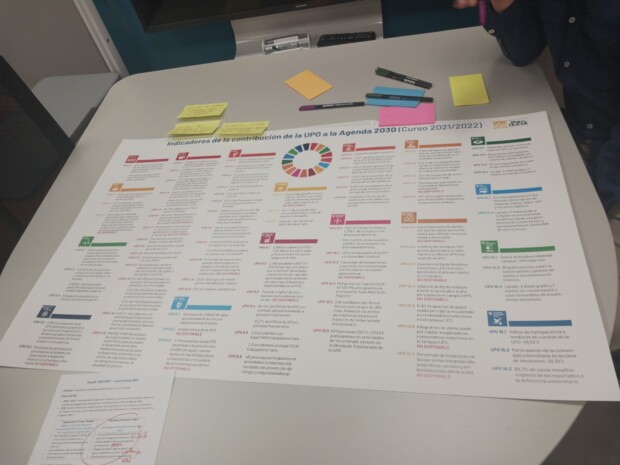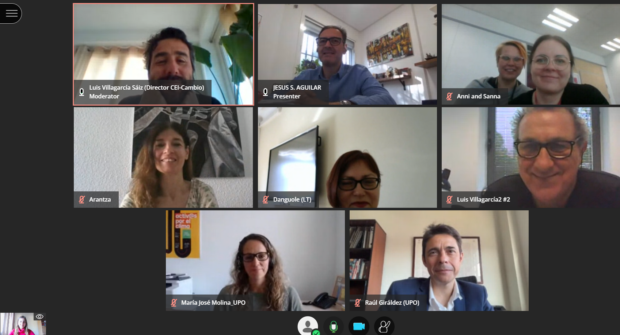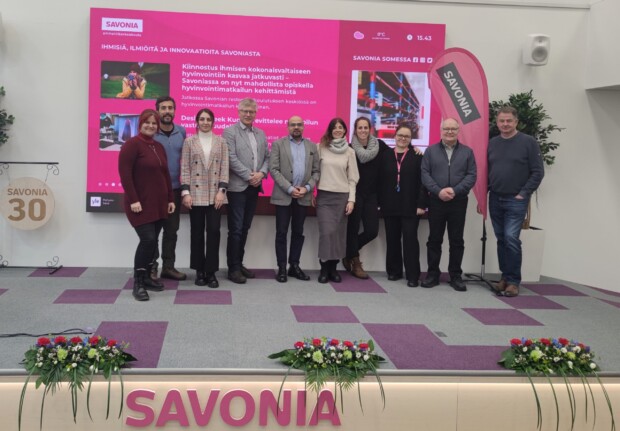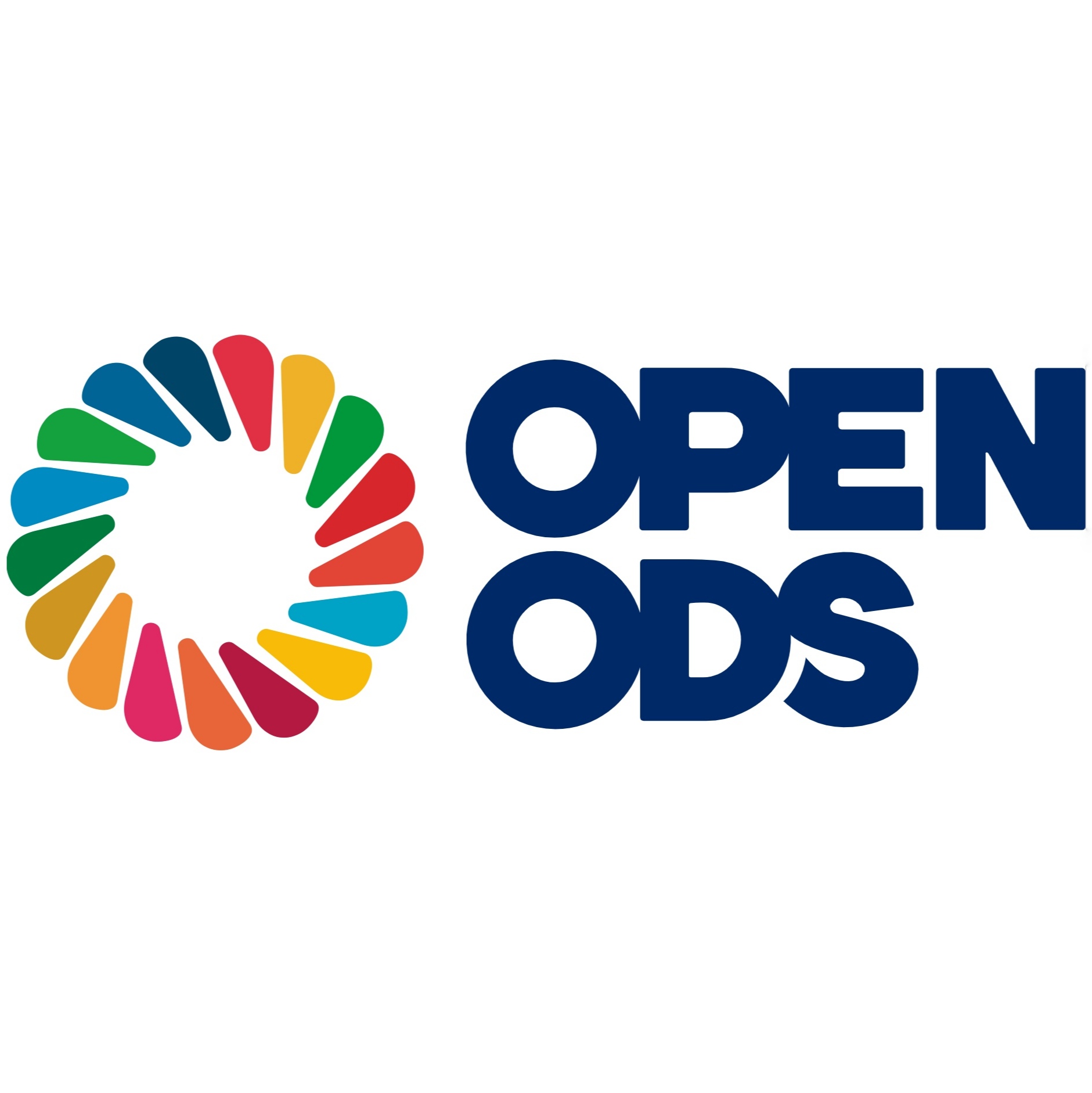Home
The cooperation project ‘Universities for Sustainable Development’ is aimed at contributing to the achievement of the Sustainable Development Goals (SDG) through the digitisation of the implementation of the 2030 Agenda in universities in Spain, Lithuania and Finland, and the subsequent irradiation of the results obtained towards other institutions of the EHEA.
The initial motivation to undertake this project is twofold:
- The project becomes meaningful as a result of the awareness of the historical crossroads in which we find ourselves, where it is essential to quickly reverse a model of negative development for our planet and for the societies that inhabit it
- Being aware of the social role of higher education institutions (HEIs), they must take a step forward and offer the best of themselves to contribute to achieving the Sustainable Development Goals, which stand up as the new global social contract of our time.
Under this framework, it is intended to make a virtue of necessity, promoting the 2030 Agenda in a transversal and comprehensive way, through the use of ICT, as an engine that allows not only to accelerate this implementation, but also to impact vertically and horizontally. In this way, work will be done on the development of 4.0 management models and on the purposeful transfer of knowledge, opening a necessary path that is now very closed for most higher education institutions.
About us
Sustainability is the most important global challenge. The UN Sustainable Development Goals provide a holistic agenda that addresses this challenge by balancing economic, social and environmental needs. Sustainable development will be the main framework for boosting impact through university missions, as universities proactively reflect, find and promote solutions in dialogue with society. Universities will put their missions at the service of sustainability, assessing and being responsible for their principles and values, as well as in their policies and activities. Under this premise, universities will continue to work on partnerships to connect, share and build capacities together with a wide range of partners in order to contribute to the expansion of knowledge.
As the UN Secretary-General Antonio Guterres said in order to achieve the SDGs by 2030, all countries must double their efforts, accelerating the implementation of the Goals, as there is only a decade left and much remains to be achieved. In this way, he called for all actors to focus on action and results, so as not to miss the commitments made. Against this background, general project objective is to accelerate the implementation of the 2030 Agenda by enhancing the transformative role of the institutions that make up the EHEA.
To this end, three specific objectives of the project are the following:
- Promote and facilitate the integration of the SDGs in all areas of university activity
- Accompany and guide the digital transformation of HEIs towards the achievement of the SDGs
- Put the knowledge generated by HEIs at the service of the SDGs.
The project also addresses three topics:
- Cooperation between educational institutions and business
- Digital content, technologies and practices
- Social responsibility of educational institutions
The project builds on the digitalisation of the 2030 Agenda to achieve better and faster integration of the Agenda into the institutions that make up the EHEA. In this way, it seeks to develop new capacities within the institutions and equip them with the tools of our time, train the staff responsible for managing the Agenda, share with multiple stakeholders in society these new digital skills and tools, and accelerate the transfer of available knowledge useful for the achievement of the Sustainable Development Goals.
In this sense, three of the four results envisaged in the project are new tools and digital vehicles (a real time SDG scorecard, an artificial intelligence-based target finder/locator, and an academic offering portal, scientific cooperation and open science with an SDG perspective). All of the above is directly linked to the horizontal priority of “Addressing Digital Transformation through Building Preparedness, Resilience and Capacity”, in so far as it allows partner institutions, and third institutions that decide to join or make use of project results, to significantly increase their digital operational management capacity.
In addition, with these new digital tools, which support both real-time decision-making with all available information, and foresight based on accurate data and estimates, higher education institutions (HEIs) will be better prepared to cope with change management and become more resilient to new scenarios. Also, the empowerment of smart management (linked to the implementation of the 2030 Agenda), sets a valuable precedent for opening the way to the 4.0 management of higher education institutions, and offers useful referents and open tools (such as the smart goal locator) for the digital transformation of society as a whole. As regards the sectoral priority of “Supporting the digital skills of the higher education sector”, this project has a positive impact on the development and training of digital competences for the management and service staff of the IES, as well as for research teaching staff with managerial and managerial responsibilities. This is made possible thanks to the assisted immersion in new 100 % digital management environments, the digital interconnection of different management areas and the training offered by the endogenous development of a digitalisation project such as the one proposed.
Finally, with regard to the sectoral priority of “Promoting interconnected higher education systems”, the proposal generates new online cooperation tools such as the “Knowledge for Sustainability” portal, redirects the potential of scientific cooperation towards advanced tools such as the SDG scorecard and the smart target locator, and lays the foundation for a coordinated implementation of the 2030 Agenda in the ESAs through the development of a theoretical-practice methodology adapted to the university context, which allows implementation under standardised criteria and a smooth exchange of good practices
Latest news
2030 Agenda Compliance Diagnosis of Pablo De Olavide University
Since last December, Pablo de Olavide University (UPO) has been…
Start of discussion in creation of Intelligent Target Locator (R3)
“Universities for Sustainable Development” project partners have come together in…
Follow-up meeting (M2) and PRIA workshop
During March 15-16, 2023, Savonia University of Applied Sciences in…
Project outputs!
1. Action plans to integrate the 2030 agenda and methodological giude
1.1. INSTITUTIONAL 2030 AGENDA COMPLIANCE DIAGNOSIS:
1.2. Action plans
2. SDG scorecard
3. Smart Goal Locator: AI {2030}
4. Portal: ‘Knowledge for sustainability’
Contact Us
In case your message is directed towards a particular partner institution, please indicate the name of that institution in the message tab and we will make sure to direct it to the right addressee.







